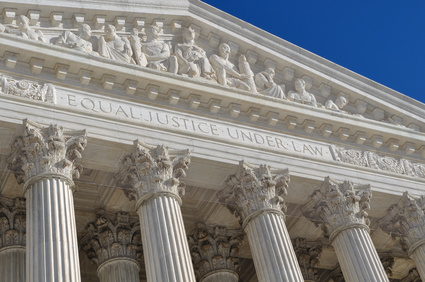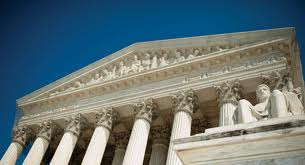The U.S. Supreme Court has agreed to consider a decision by the U.S. Court of Appeals for the Fifth Circuit that found the Consumer Financial Protection Bureau’s funding structure was unconstitutional. And so, for the second time in less than four years, the CFPB’s fate is set to be decided by the nation’s highest court.
Posts tagged as “SCOTUS”
The Supreme Court of the United States recently concluded that Kentucky’s “clear-statement” rule violates the Federal Arbitration Act (FAA) by singling out arbitration agreements and treating them differently from other contracts. The Kentucky Supreme Court had held that the arbitration agreements at issue were invalid because the individuals who entered into the agreements did so under a power of attorney, and the powers of attorney at issue did not specifically entitle the representatives to enter into an arbitration agreement. The Kentucky Supreme Court reasoned that, because the Kentucky Constitution declares the rights of access to the courts and trial by jury…
The Supreme Court of the United States recently held that a city qualifies as an “aggrieved person” under the federal Fair Housing Act, 42 U.S.C. § 3601 et seq., and thus that the plaintiff city in this action had standing to assert claims under the FHA against banks the city believed were engaging in unlawful discriminatory lending practices. According to the city, the unlawful lending practices caused, among other damages, a disproportionate number of foreclosures and vacancies in majority-minority neighborhoods, which impaired the city’s effort to assure racial integration, diminished the city’s property-tax revenue, and increased demand for police, fire,…
The Supreme Court of the United States recently held that a state law penalizing merchants for charging a surcharge for credit card payments did not restrict the amount that a store could collect when a buyer paid by credit card (i.e., a regulation on conduct). Instead, the Court held that the state statute regulated how sellers may communicate their prices, and was therefore a regulation on speech subject to First Amendment scrutiny. As you may recall, in Dana’s R.R. Supply v. AG, 807 F.3d 1235 (11th Cir. 2015), the U.S. Court of Appeals for the Eleventh Circuit held that a…
I have today’s transcript from oral argument before the Supreme Court in Marx v. General Revenue. Ms. Marx lost her Fair Debt Collection Practices Act (“FDCPA”) case against General Revenue. Under Federal Rule of Civil Procedure 54(d), which permits the court’s clerk to tax costs to a prevailing party, the trial court taxed her with General Revenue’s defense costs — not attorneys fees, just costs, and limited ones at that. Marx appealed to the Tenth Circuit Court of Appeals and argued she should not have to pay these costs because the FDCPA, at section 1692k(a)(3), only exposes her to costs if she brought the…





